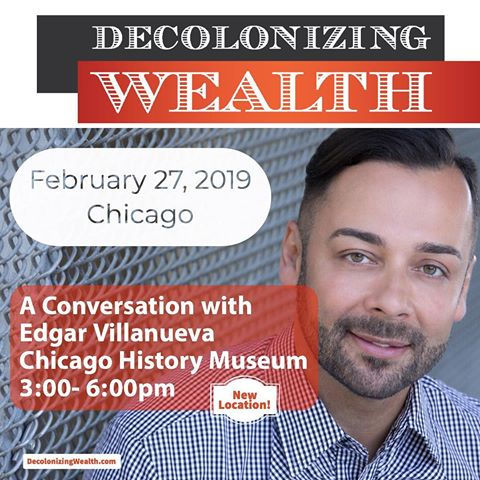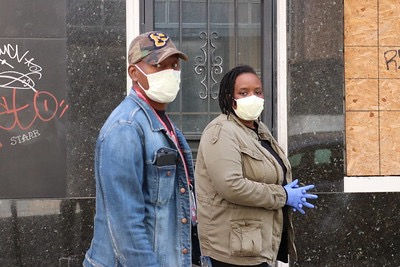Can Philanthropy Help Restore Power to Marginalized Communities?
- Shilpa Bavikatte
- May 9, 2019
- 3 min read

What if money could heal us? What if funders, philanthropists, and entrepreneurs funded ideas and programs that challenge current structures and systems and that promote and perpetuate inequality? Iris Krieg & Associates (IKA), along with other philanthropic groups, invited author Edgar Villanueva to help us begin to answer those questions in Chicago for two speaking engagements recently.
Philanthropy has always been built on the idea that those with wealth should donate a portion of it for the public good. Private philanthropy fills many gaps in human services that government funding simply cannot reach. However, even with all that good work and good intention, philanthropy isn’t without well-deserved critique.
Villanueva is one of those critics. His book, Decolonizing Wealth: indigenous wisdom to heal divides and restore balance, takes on philanthropy from an insider’s perspective. Villanueva uses his own personal experience as a Native American grant maker to challenge fellow peers and institutions to take a closer look at philanthropy’s goal in helping communities and many times, underprivileged groups.
Villanueva’s first event during his Chicago visit was with a room full of local philanthropic leaders. At this engagement, he pondered how foundation staff should not only be good stewards of their trustees’ and foundations’ wealth, but stewards for social change. He asked the group to consider what foundations are doing to go beyond funding programs and truly elevate people in need. Is philanthropy attempting to right the balance of inequity? Do grants truly help pull people out of poverty or are they simply a patronizing gesture? Furthermore, does philanthropy reinforce dominance of the “Haves” over the “Have Nots”? Villanueva asked these leaders, and to the broader nonprofit community during the afternoon session, to start questioning if these structures of power that foundations hold are eliminating inequities or reinforcing them.
Villanueva is part of a new wave of leaders posing these tough questions to the industry in the hopes that there will be some movement toward an intentional solution to society's woes outside of traditional grantmaking. He explained that each institution must work with its leadership, staff and grantees to find what works for them and the communities in which they work.
While some possible solutions were presented during Villanueva’s visit, he pointed out that each foundation’s challenges are unique and that actions to address inequality would be highly individualized. For example, “impact investing”, or ensuring that foundations’ investment firms/managers and the investment portfolios themselves are philosophically aligned with the foundation, was one area to consider. Another idea is for funders to get a better understanding of the demographics of both the clients and leadership at organizations. In promoting more equitable philanthropy, Villanueva asks us all to examine philanthropy’s interest in promoting the welfare of others and our role in restoring power to communities.
IKA was particularly interested in supporting this conversation because more and more foundations are asking us how they can be more equitable. IKA is working with some of our clients to help them define what equity means to them and how their foundation can support these efforts both internally and through grantmaking. As IKA staff is discovering, this process is constantly evolving and requires institutions to be flexible and knowledgeable on the issues that marginalized communities are facing so grants can be directed not just towards the needs of the communities, but also towards addressing structures of oppression that keep groups disenfranchised.












Comments